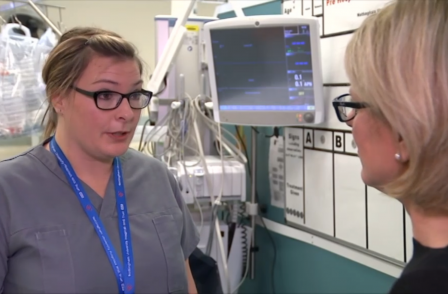
A new study claims to highlight the success of a campaign to increase the number of female experts on news programmes.
The findings, from Professor Lis Howell at City University London, show significant improvements in three of the five TV and radio programmes monitored.
This comes two years after Broadcast Magazine launched a campaign seeking to change the ratio of male to female experts to less than 3:1.
Channel 4 News, Sky News and BBC Radio 4's Today programme all showed an improvement in the proportion of female experts interviewed, with increases of 37 per cent, 34 per cent and 19 per cent, respectively – compared with the last time this research was carried out.
However, ITV News at Ten and BBC News at Ten failed to improve since Professor Howell's previous research conducted between 2013 and 2014.
The commercial broadcaster's flagship news programme recorded a substantial fall in the proportion of female experts, with almost five men appearing for every one woman.
The results were revealed at Professor Howell's inaugural lecture at City University on Wednesday 25 November.
She said: “These results are astonishingly good news and show that the campaign to get more women experts used in news programmes has helped to change the industry.
“However, women are still not being used enough by flagship shows in this country and it is clear that more work needs to be done.
“ITV’s performance is shocking and, with the negligible progress of BBC News at Ten, it raises the question, why are the two big beasts still like this?
“The two-year campaign started by Broadcast magazine in 2012 appears to have made a big difference. And thanks to the Expert Women campaign by the BBC Academy in 2013, we are nearing its target ratio of three to one.
“Special mention should go to the Today programme, which has drastically improved since my early research, in 2011, which showed male experts outweighed women by as many as six to one on some editions.”
Speaking at the lecture, Professor Howell encouraged female experts not to decline when asked to appear on news programmes.
She said: "Women should not feel guilty for being pushy, you are not being pushy by going on air."
Five News was included in the research for the first time, with a ratio of 1.6 men to every 1 woman, a better record than any of the other five programmes.
The new study covered 17 months between April 2014 and September 2015.
Email pged@pressgazette.co.uk to point out mistakes, provide story tips or send in a letter for publication on our "Letters Page" blog
